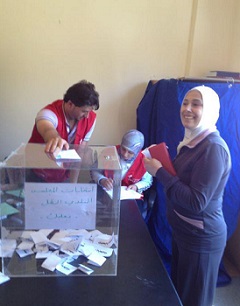LESSON
Lesson Learned: Creating a Network of Young Reporters in Armenia
The grantee paid for the transport costs for children from outlying villages and towns to come to the central locations for the workshops. This allowed for the project to reach youth beyond those in the regional centers. This was an efficient way to reach youth in other areas of Armenia for a Yerevan-based organization. There was positive change in places by the youth asking questions about issues and taking photos and films of it. Many rural villages are small and these types of activities are not usual and would have been noticed.
Project Name
Project Partner
Manana Youth Educational Cultural Center
Project Description
The project sought to empower youth and increase their civic participation and the building of a more democratic society through the development of their media skills. Its intended outcomes were to: 1) increase civic and media literacy among regional youth; and, 2) increase the participation of youth in information creation, production and distribution. Its activities intended to 1) increase the capacity of 300 youth in media and journalism through workshops, mentoring and peer teaching; 2) use media as a tool for empowerment by combining social media with professional journalism to strengthen the voice of participating youth; and, 3) connect the youth through a young reporters’ network to organize joint projects and serve as role models.
Report
Evaluation Date
December 2014
Theme
Country
